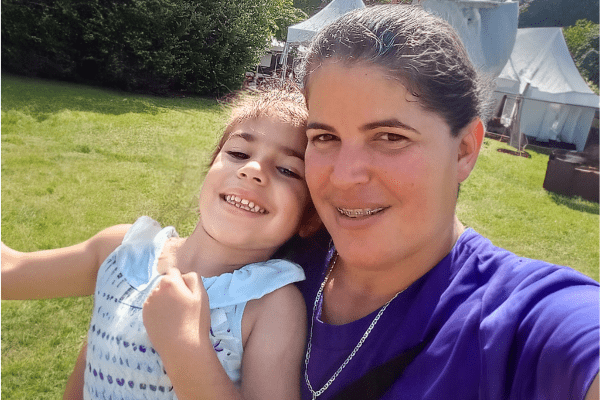
Yammara | Unwavering Support
Yammara Sambrine has been part of Epilepsy Alliance Florida since she moved to Miami in 2006. She had her first

For many college seniors, excitement is in the air as they prepare to complete their chosen degree and decide whether to pursue extended education in a post-graduate program or polish resumes and start their post-college career path. As I prepared for my last semester of college, with this journey quickly coming to a close, I had all the aspirations to begin a successful career with the mission of helping others, including plans to independently purchase life necessities and embark on my adult life.
During my late teens and early twenties, I was diagnosed with epilepsy and began my journey to overcome it. I became determined to live a life of independence, accomplish the same life goals I had made as a young child, and perform the same tasks as anyone else. All of that was put on hold when I felt an aura during my final class of my final semester of college. Mind you, I had already controlled my epilepsy, maintained my independence, was seeing a quality neurologist, and taking my medications at the proper dosages and times as prescribed. As the aura persisted, I felt myself slowly losing control—a feeling I had experienced before, but this time it felt unfamiliar given the setting and the stakes involved with being so close to completing my bachelor’s degree.
With anxiety and concern about how my peers might perceive the situation, I stepped out to get some air, clear my head, hydrate with water, and collect my thoughts. I paced around, trying to think of anything other than the current situation—a piece of advice I remembered from my neurologist at the time. The next thing I knew, I was in a hospital with no idea what had occurred, although I vaguely remembered staring up at a large group of concerned people and onlookers. It turned out I was concussed and had no recollection of what transpired for about an hour or so. My friend on campus had quickly helped me to safety. I spent a week in the hospital until I fully recovered, and to this day, I am grateful for the care I received during that time.
My college professors were understanding and kept me updated with lessons. They were empathetic and available whenever I needed support. I couldn’t drive for six months after that seizure, but thanks to the gracious support of my family, I received transportation to and from campus to finish my college degree. This happened in 2010, and that was my last tonic-clonic seizure to date. My disorder is currently well-controlled, and because of this, I have made it my mission to have a positive impact in social work—a turn that has greatly increased my confidence on both a personal and professional level.
My family has always told me that I have the persistence and drive to overcome any obstacle thrown my way. After getting through this situation, I gained self-esteem through trials, keeping a positive mindset with persistence and determination. If sharing this story makes a difference to others and provides a sense of calmness that goals can be completed no matter the obstacle, then I have achieved my mission of impacting others in a positive manner. Sometimes it is our struggles that make us stronger, and when success happens, it makes it that much more impactful. Life can throw curveballs, but it’s how you handle them that matters—life can be challenging, but it can be so rewarding at the same time.
I am forever grateful to have such an amazing support system, including my parents and brothers, who have learned seizure first aid and have provided me with moral support throughout my entire journey. They continue to support me to this day as I live an independent life filled with positivity and enrichment. Epilepsy awareness and education are valuable tools in mitigating the negative impact of seizures as much as possible, not only for yourself but for those around you. Being cognizant of the signs of epilepsy is crucial for safety and for ensuring a quality first response.
As a Case Manager at Epilepsy Alliance Florida (EAFLA), I strive to make a positive impact on others who seek support regarding epilepsy education, groups, and more to enrich their lives. I recognize the impact that case managers can have on people and the tools we provide serve a purpose, giving people the building blocks for life. This platform gives me a chance to tell my story—one that I feel is very important to anyone who wants to learn or hear that succeeding is possible if you put your mind to it. That’s not just a saying; it’s a fact of life. Epilepsy is a part of me, but it does not define who I am.
Written by: Sean Pratten

Yammara Sambrine has been part of Epilepsy Alliance Florida since she moved to Miami in 2006. She had her first

Meet Teo Vasconcellos, an inspiring 18-year-old boy who came to the U.S. from Argentina in 2016. At the age of